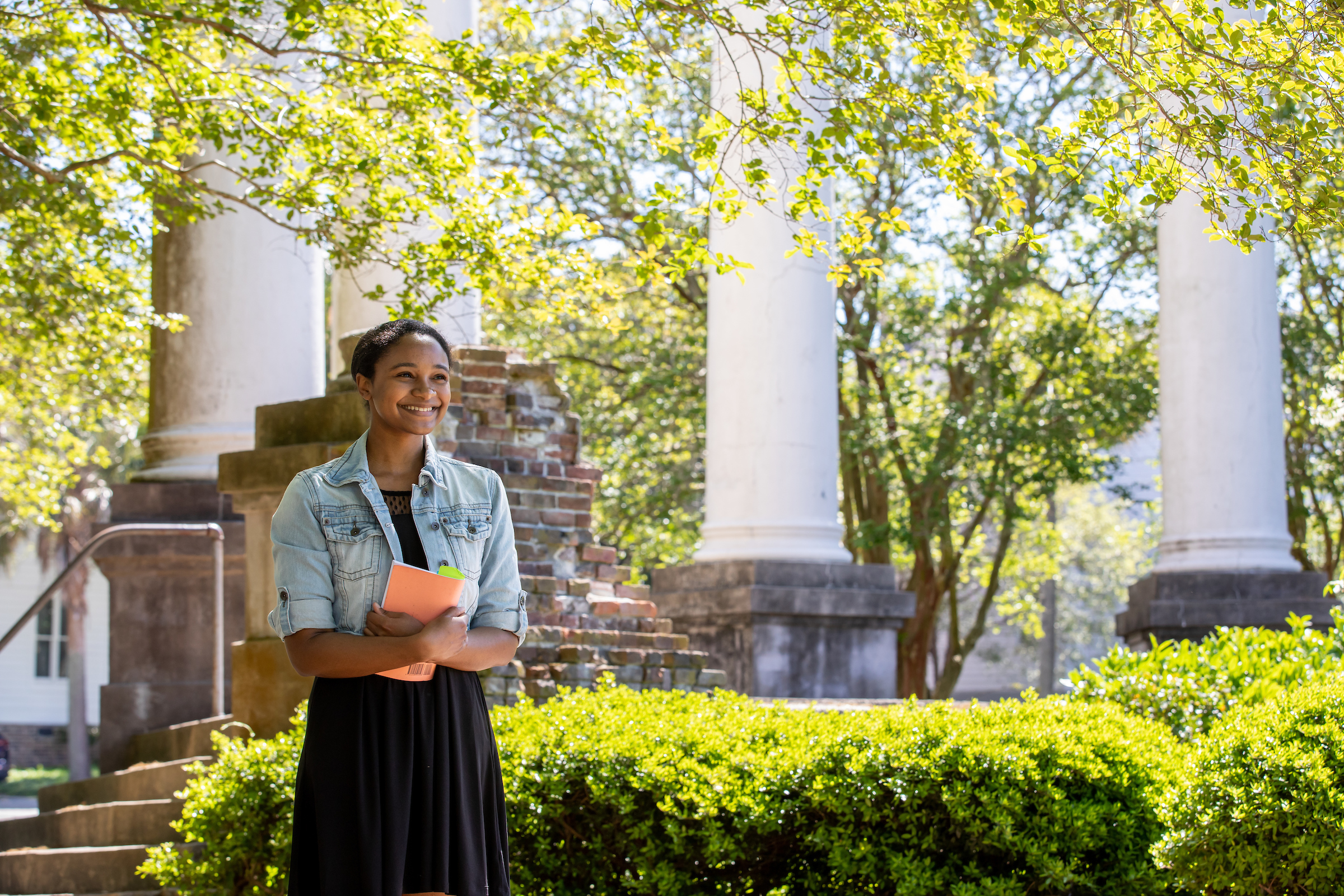Classics Major
Sigmund Freud, Vince Lombardi and J.K. Rowling studied Classics.
Classics is the study of Greek and Latin. It involves a close analysis of languages and an examination of the cultures’ history and politics. But it can also involve computer modeling. You'll learn skills in critical thinking, research and communication. With an undergraduate degree in classics, you can continue your education or pursue a career in education, law, politics and more.
Why study Classics at the College of Charleston?
Are you interested in exploring Greek and Latin languages or investigating Greek and Roman culture? If so, classics is for you. The College has one of the top Classics programs for undergraduates in the U.S. It embodies personalized education through research opportunities and programmatic concentrations. You can design this program to fit your interests while developing skills in core areas of study.
What will I learn?
Language Track (Classics, A.B.)
Greek and Latin provide unique skills. By learning a different system for creating meaning, you'll learn how languages work, from the inside out. The study of Greek and Latin is the study not only of a specific language, but of language in general.
View Curriculum: Classics, A.B.
Culture Track (Classics, B.A.)
Here, you'll learn to recognize the patterns in human development. You'll gain a broad view of the foundations of American, European and Mediterranean civilizations and learn how to apply that knowledge to the present day. This extensive study of human associations prepares you for leadership.
View Curriculum: Classics, B.A.
Program Highlights
-
Hands-on Learning
Learn to apply your knowledge of human societies to the world around you. Many of our students take part in research projects, archaeological fieldwork, data processing and study abroad.
Internship OpportunitiesWith an internship, you can gain valuable educational and networking experience. You can work with faculty members to design an internship in an area that suits your interests and career goals.
Study AbroadTake advantage of opportunities to study abroad in Greece, Italy and other Mediterranean countries. Participate in short (14-28 days) trips led by College of Charleston faculty. Or, complete a year-long program via affiliate institutions such as the College Year in Athens or John Cabot University in Rome. You may also want to engage in archaeological fieldwork over the summer.
-
Faculty Expertise
The teacher-scholars in the Department of Classics use a broad array of approaches to investigating the world. Our faculty publish their research in national and international venues and also bring their work into the classroom. We have specialists in:
- Greek archaeology.
- Roman archaeology.
- Roman culture.
- Greek history.
- Roman history.
- Latin literature.
- epic poetry.
- ancient philosophy.
-
Location
Randolph Hall, the oldest educational building on campus (1830), remains the home of the Classics department. The Classics department is the only academic unit that is still housed in this beautiful Greek Revival building. Only in Classics courses will you sit in Randolph Hall 301, the oldest continuously taught-in classroom in North America. Students have been learning Greek and Latin in this room for almost 200 years!
Careers & Outcomes
What can you do with a major in Classics? Take a closer look at the career journeys of our alumni and browse the data below to discover where their College of Charleston degrees have taken them.


Achieve Your Goals
Lauren Curry wants to be a museum studies professional. Knowing that, she reverse-engineered her course of study and decided to study both Classics and archaeology.
Read More
About the Minor
If you're interested in all things Greek and Roman, consider adding the classics minor. You'll build important skills while studying what you love. From marketing to management to medicine, anyone can add this minor to their course of study.
View Curriculum: Classics Minor